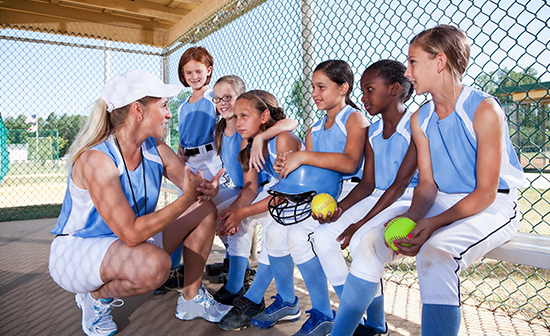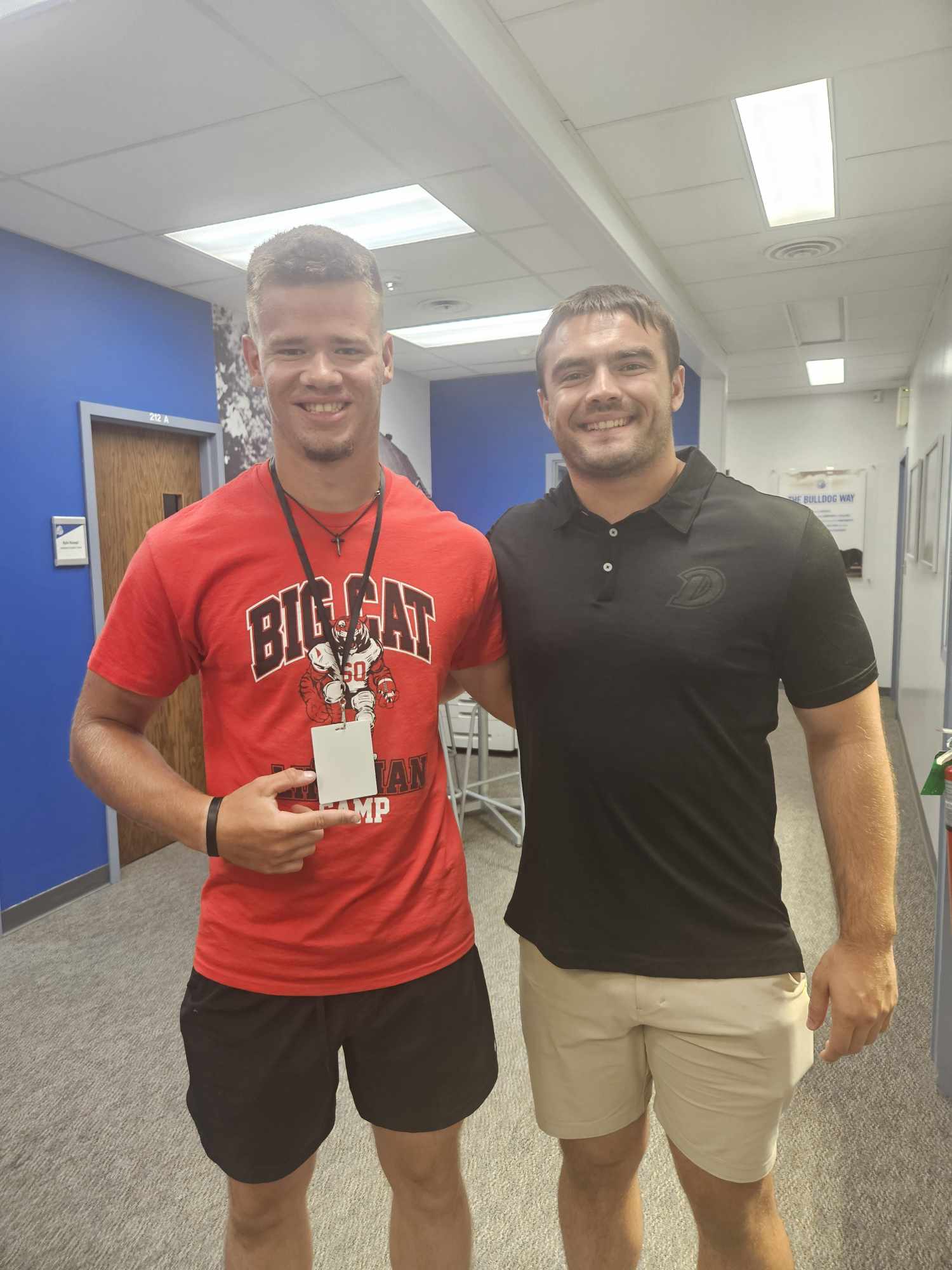
SELF-TALK CAN CALM YOUR NERVES
Nerves are a natural phenomenon for athletes.
Sport psychologist Dan Abrahams said, “research suggests that the language centers of our brain control the insides of our body, linking with heart rate, the release of glucose, the type of hormones streaming through the blood stream. Words are powerful — we have the ability to use our words to change the external world we see in front of us and the internal world we experience within us.”
Instead of fearing our nerves, he said we should accept and embrace our nerves and find a way to deal with it by changing our own story. Say to ourselves that, “Nerves are not so scary. I can still run and move and pass and shoot with these feelings.”
Former Iowa State and professional basketball player and current speaker said self-talk. Her research showed the following: *Positive self-talk can improve confidence. *It positively does affect performance. *It affects motor skill performance more than cognitive performance. It should be practiced ahead of time. It should be more about what is productive for athletes in certain situations.”
Abrahams added, “Zoom out! Step outside of yourself and examine your feelings and behaviors from afar. By slightly dissociating from the situation, you give yourself a better chance to weave an improved story.”

A PEP TALK FOR YOUTH ATHLETES
“A good coach can change a GAME. A great coach can change a LIFE.”
John Wooden
Becoming an athlete at the age of 10 led to my professional career as a youth swimming coach, as the founder of a non-profit addressing issues in youth sports, and now a grandparent watching my grandsons play competitive sports.
Needless to say, I have interacted with and watched a lot of coaches at all levels of sports.
The fact that there are a lot of things kids can take from participating in sports is not a surprise. If coaching is done correctly, kids can learn lessons that last a lifetime. At the end of the day, or the end of my career, I would tell my athletes, “I will always believe in you and am so grateful to have had the opportunity to coach you. Remember that all the principles surrounding your athletic careers can be applied to your profession careers and personal interactions for the long term.”
You won’t always win in life. Losing is only a failure if you fail to do anything about it. Never accuse anyone for your loss, give people surrounding you credit for the victories, and tell them you will do a better job in helping them in the future. What allows you to keep your head high and failing in whatever you attempt is learning from the mistake and working hard.
It’s okay to fail because if you’re not failing, you’re not learning. Perseverance allows you to continue trying to do something even though it is difficult. Think back to one of your disappointing losses. I hope you learned more from that one loss than all the wins together.
Only one team or one athlete can win. Sports, and life, must be about the process, the journey and not about the objective of winning.

KEEPING GIRLS IN SPORT
Statistics show girls drop out of sports at higher rates than boys as they transition into the teenage years. So why is this happening?
Societal pressures and gender stereotypes. According to Amy Masters of iSport360, “Body image concerns are a significant barrier to girls’ participation. As girls go through puberty, they may become more self-conscious about their changing bodies…Negative body image can lead to decreased confidence and motivation to participation in sports.”
She said we need to promote positive body image and self-esteem by “celebrating diverse body types and challenging unrealistic beauty standards.”
The lack of female role models and represetation in sports media, coaching staffs and leadership positions also can affect girls’ perceptions of their place in sports envionments. Masters says organizations should make an effort to increase the number of female coaches and staff, leaders in sports media and leadership positions.
“Provide opportunities for girls to connect with female mentors and role models…Empower girls to take ownership of their athletic journey and make decisions that align with their interests, goals and values. Encourage girls to advocate for themselves, express their opinions and participate in decision-making processes. Your culture will help players advocate for themselves.”

RECRUITING CAN BE STRESSFUL
Summer has concluded, the season for some high school student-athletes looking forward to their next competitive experience. But it can continue until a commitment or official signing has been made.
There are camps to attend, phone calls and visits from college staffs. Coaches coming to school to observe, to have conversations. It’s like applying for a job.
These are 17-, 18-year-old kids. They need an involved supporting cast, whether it be from current coaches, teammates and friends, but most importantly, from parents.
A blog posted on the Soccer Parenting website by Sports Recruits discussed ways for parents to support their children during these recruiting events.
*Effective communication with college coaches prior to the event is critical. Coaches want to hear directly from the athletes about their interest in the school and why.
*Email coaches eight-to-10 days prior informing them of the attendance, including the athlete’s name, graduation year, position, high school/club name.
*Following the event, student should send a thank-you note.
*Parents should maintain a positive and supportive demeanor on the sidelines since they are being recruited, also.
Parents should be a calming presence and avoid adding pressure. Be the biggest cheerleader for the student. Encourage them to share their feelings with their support group.